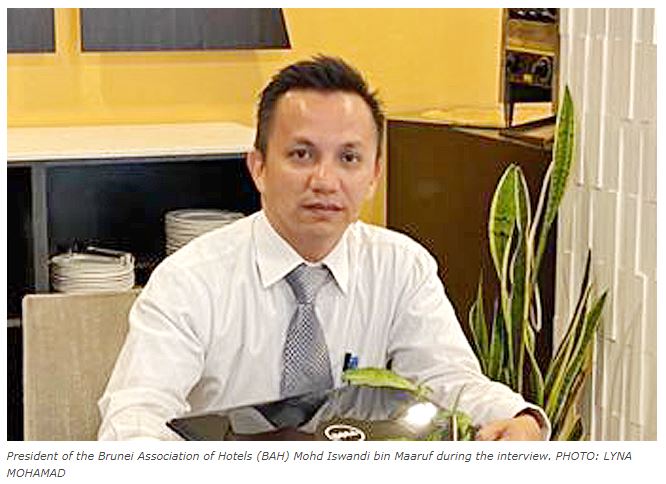Brunei: COVID-19 affects local hotel industry
The coronavirus (COVID-19) outbreak has affected the local hotel industry, resulting in a loss of revenue amounting to BND530,480.58 and about 4,174 room cancellations from December 14, 2019 to March 31, 2020.
These statistics were shared by President of the Brunei Association of Hotels (BAH) Mohd Iswandi bin Maaruf, who added that the cancellations – including restaurant bookings – were made through local and online travel agents.
“These also included bookings for Meetings/Incentive/Conference/Exhibitions (MICE). Figures obtained from hotel records showed an average occupancy rate of 23.1 per cent, while the hotels’ dependency on China was 19.5 per cent,” he said.
The cancellations were made by clients from Australia, Belgium, Brunei, China, Denmark, Hong Kong, Ireland, Japan, Korea, Malaysia, the Philippines, Singapore, Thailand and Vietnam.
The cancellation market segments are made up of 24.6 per cent for conventional travel agents (tour/groups), 19.05 per cent for online travel (B2C), 10.8 per cent for the corporate sector, 9.6 per cent for FIT/Direct Hotel Bookings, 4.7 per cent for MICE, 1.5 per cent for government, and 0.7 per cent for others. B2C refers to the process of selling products and services directly between a business and consumers who are the end-users of its products or services; and most companies that sell directly to consumers can be referred to as B2C companies.
B2B, on the other hand, are business-to-business, which is a form of transaction between businesses, such as one involving a manufacturer and wholesaler, or a wholesaler and a retailer; and refers to business conducted between companies, rather than between a company and individual consumers.
In an interview, following a BAH discussion at The Capital Residence Suites over the weekend, Mohd Iswandi noted that COVID-19 cases are currently on the rise in South Korea, while Saudi Arabia is suspending tourist visas.
“This will impact the hotel industry further, since hardly anyone is travelling these days. At present, the hotels are concerned about managing operational costs and other financial costs,” he said.
Asked whether retrenchment would be a viable option, he answered, “It is not the best solution at the moment, as most hotels have limited staff. Bear in mind that once business picks up once more, it will be difficult to employ new staff and it will take months to train them.
“Since 2019, we have conducted customer service training for the hospitality industry, and the training will be continued again this year, in preparation for the ASEAN Summit 2021.
“The best solution to prevent retrenchment is to set up a special task committee with government agencies, as we need to work closely together. As of 2019, local employment in Brunei’s hotel industry is at 72 per cent, while foreigners make up 28 per cent.
“My advice to local hotels is to promote more discounts for the domestic market. Our domestic market is limited, with peak periods only during school holidays, public holidays and weekends. Hotel rooms need to be occupied on a daily basis.”
Mohd Iswandi also disclosed that BAH has been working closely with its hotel members, along with the Tourism Development Department and the ASEAN Hotel and Restaurant Association (AHRA).
“Recently we issued COVID-19 guidelines and checklists to our hotel members, as well as guidelines on the cleaning and disinfecting of areas exposed to confirmed cases of COVID-19,” he said.
“The Malaysian Association of Hotels (MAH) has said that the RM20 billion economic stimulus package bodes well for Malaysia’s hospitality industry, as it addresses the association’s two main concerns directly — to ease cash flow and financial burden as well as to drive tourism.”
On recent figures for the local hotel industry, he said, “The statistics show that business will be down for at least six to eight months. Some hotels have been feeling the impact since February, and most will be affected from March.”
Source: https://borneobulletin.com.bn/covid-19-affects-local-hotel-industry/


 Thailand
Thailand




